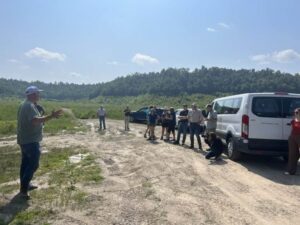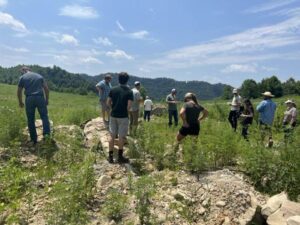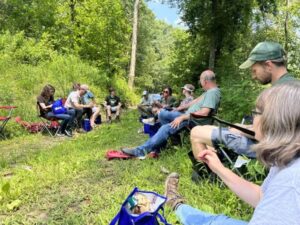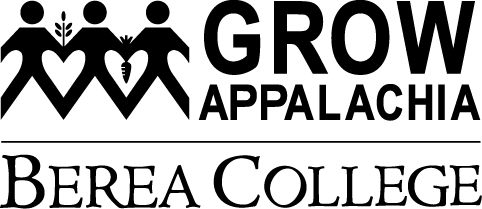 On Wednesday July 26th a group of 25 individuals representing numerous states set out for Martin County to tour an abandoned strip-mining site, marking the start of Letcher County’s Growing Home: A Community Revival. The four-day Growing Home event commemorates one year since the devastating floods in Eastern Kentucky in the hope of bringing together the local community through agricultural workshops, musical performances, and much more.
On Wednesday July 26th a group of 25 individuals representing numerous states set out for Martin County to tour an abandoned strip-mining site, marking the start of Letcher County’s Growing Home: A Community Revival. The four-day Growing Home event commemorates one year since the devastating floods in Eastern Kentucky in the hope of bringing together the local community through agricultural workshops, musical performances, and much more.
Located along the Kentucky-West Virginia border, Martin County finds itself at the heart of the Appalachian region, and a home to just under 12,000 Kentuckians. In the late morning of a swelteringly hot day, the group convened at the first of three stops on the site. Clifford Smith, the managing partner of Appalachian Renewal Project who purchased the land in recent years, explained to us the company’s vision for the former mining site. Grounded in a sense of stewardship, Clifford believes that the project could serve an opportunity to further Martin County community empowerment through sustainable land restoration, with agroforestry at its core. Clifford also presented part of the complex context in which the project is embedded: Martin County faces unique socio-economic challenges– it was here that Johnson first declared his War on Poverty, and the site itself suffers from significant environmental issues such as invasive species and stream pollution. Nonetheless, the project’s potential was evident and exciting.

As we moved from stop to stop, field experts presented thorough analyses of the landscape and potential ideas for site restoration. Their insight was met with numerous questions and keen engagement from the group. For both agroforestry experts and total novices the site visit generated connective dialogue around the future of this project, and restorative agriculture in Appalachia at large.

Valerie Horn, the director of Cowan Community Action Group Inc., facilitated a group discussion over lunch, making space for reflection on the trip and drawing the group together. We collectively reflected on the following questions and continue to consider their complex and variable answers throughout this week and beyond.
- How do we take ownership of and responsibility for the land?
- How can we go through with this without being heavy handed, prioritizing the dignity of the people whose livelihoods are here?
- How do we make use of federal funding in a war that genuinely benefits us?
- How can we make the best use of what we have, given all the uncertainty?
5. How do we get more folks in the know and excited to be in this work?
Just one of the many considerations as we move forward.



Leave A Comment